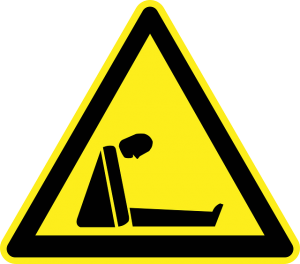
A master’s degree in public policy can open up a lot of career opportunities for you. It is an excellent way to gain the skills and knowledge you need to work in the government or nonprofit sectors. In this blog post, we will discuss some of the most common career options for graduates of public policy programs. We will also talk about how you can prepare yourself for these careers. So if you are wondering what to do with your master’s degree, read on!
1. What is a master’s in public policy, and what are its key benefits?
To put it simply, a master’s in public policy is a degree that prepares students for careers in government and politics. The key benefits of this degree are the ability to analyze policy issues and develop creative solutions to problems.
What makes this degree unique is its focus on both practical and theoretical aspects of policymaking. This means that students not only learn how to navigate the political process but also gain an understanding of the economic and social impact of policy decisions.
Also, students who pursue a master’s in public policy often have the opportunity to intern or work in government agencies and think tanks. This allows them to gain first-hand experience in the policymaking process.
2. How can people get a master’s in public policy?
When looking at how to get a master’s in public policy, there are many ways that people can go about it. There are traditional brick-and-mortar colleges, there are masters of public policy online programs and even some employers who offer tuition assistance for employees who want to pursue a degree in public policy. So, there are many options available for people who want to get a master’s in public policy.
In addition, there are many different types of public policy programs available. So, people can choose a program that is specific to their interests. For example, there are public policy programs that focus on environmental policy, health policy, education policy, and so forth.
Choosing the right program is an important decision because it will determine what type of job a person can get after graduation. So, it is important to choose a program that is in line with a person’s career goals.
3. What are the different career options available to someone with a master’s in public policy degree?
There are many different career options available to those with a master’s in public policy. Some of the most popular career choices include working as a policy analyst, lobbyist, or government relations specialist. Other options include working as a program manager or research associate for a think tank or nonprofit organization, or as a consultant for a government agency or private company.
With such a versatile degree, graduates of public policy master’s programs can pursue careers in many different sectors, including the public, private, and nonprofit sectors. There are also many opportunities for those with a passion for teaching and writing to pursue careers in academia.
No matter what career path you choose to pursue, a master’s in public policy can help you make a difference in your community and make a positive impact on the world.
4. How can you best prepare yourself for a career in public policy?
One way to prepare for a career in public policy is to get involved in your community. Volunteer for local organizations, attend city council meetings and learn as much as you can about the issues that affect your community. You can also join professional organizations related to public policy. These organizations offer networking opportunities, job postings, and professional development resources.
Finally, consider pursuing an internship or fellowship in public policy. These experiences can provide you with the opportunity to learn about the day-to-day work of a public policy professional and gain valuable experience that will help you in your career.
5. What are some of the challenges and opportunities associated with pursuing a career in public policy?
You can find work in the public sector, private sector, or nonprofit organizations. The nature of the work will vary depending on where you end up, but it may involve conducting research, writing reports, analyzing data, developing policy proposals, working on legislation, or communicating with the public.
There are a few challenges to keep in mind if you’re considering a career in public policy. First, it can be difficult to get your foot in the door without relevant experience or connections. Second, the work can be challenging and demanding, often requiring long hours and complex problem-solving. Finally, the field is constantly changing, so you need to be prepared to adapt and keep up with new developments.
6. Are there any other steps I can take to further my career in public policy?
Since you have a master’s degree in public policy, you might be interested in working as a policy analyst. Policy analysts are responsible for researching and writing reports on various social, economic, and environmental issues. They also develop recommendations for policymakers on how to address these issues.
If you’re interested in working as a policy analyst, there are a few steps you can take to further your career. First, consider pursuing a PhD in public policy or a related field. This will give you the advanced research skills and knowledge you need to be an effective policy analyst.
Second, try to get experience working in the public sector. This will help you understand how government works and how policies are developed and implemented.
Third, stay up to date on current public policy issues. This will help you identify trends and develop recommendations that are based on the latest information.
Fourth, join professional organizations related to public policy. This will give you access to networking opportunities and resources that can help you in your career.
Fifth, consider teaching public policy at the college level. This will give you the opportunity to share your knowledge with future generations of policymakers.

In conclusion, if you are interested in a career in public policy, there are many options available to you. With a master’s degree in public policy, you can work in the government, the private sector, or the non-profit sector. You can also choose to work in an area of public policy that interests you, such as education policy or healthcare policy. Whichever path you choose, a career in public policy can be very rewarding. Thank you for reading!


















































